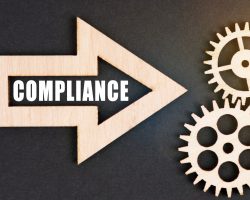A Comprehensive Guide to Managing Healthcare Cybersecurity Breaches – Part II
By | July 2, 2024In Part I of our 2-part series, A Comprehensive Guide to Managing Healthcare Cybersecurity Breaches, we discussed the following: In Part II, we explore mitigation, remediation, legal considerations and potential liabilities, and post-breach recovery. Mitigation and Remediation After a healthcare organization experiences a cybersecurity breach, immediate steps towards mitigation and remediation are critical to minimize…
Read MoreA Comprehensive Guide to Managing Healthcare Cybersecurity Breaches – Part I
By | June 5, 2024Healthcare faces constant cybersecurity threats, from ransomware attacks disrupting patient data access to phishing scams and insider threats. The sensitivity and high black-market value of healthcare records make the sector a prime target for cybercriminals. This situation highlights the crucial need for comprehensive cybersecurity strategies, including risk assessments, staff training, incident response plans, and adherence…
Read MoreEnhancing Healthcare Outcomes: The Strategic Impact of a Forward-Thinking CIO
By | May 30, 2024The Chief Information Officer (CIO) role has undergone a remarkable transformation in the healthcare sector. Traditionally seen as the head of the IT department, responsible for maintaining systems and ensuring the smooth operation of technological infrastructure, today’s CIO plays a far more strategic and pivotal role. As healthcare organizations navigate the complexities of digital transformation,…
Read More7 Essential Components to Mastering Healthcare Compliance [eBook]
By | April 23, 2024The landscape of healthcare compliance is characterized by a complex web of federal and state regulations, industry standards, and best practices, all aimed at ensuring that healthcare organizations operate in a manner that is both legally sound and aligned with the ethos of patient-first care. The need for a robust healthcare compliance program has never…
Read MoreTransforming Healthcare Revenue Cycle Management with Artificial Intelligence: The Role of Healthcare Consultants
By | September 26, 2023In an era of increasing healthcare costs, strict regulatory requirements, and shifting payment models, healthcare organizations are under tremendous pressure to optimize their Healthcare Revenue Cycle Management (RCM) processes as it is pivotal for the financial viability of healthcare providers. Revenue cycle management encompasses a series of administrative and clinical functions that contribute to the…
Read MoreCASE STUDY: A Comprehensive Healthcare Compliance Program for a Tribal Health Client – Part 2
By | June 7, 2023Tribal Healthcare Compliance & Our Client’s Unique Situation Tribal healthcare compliance refers to the process of ensuring that healthcare organizations serving Native American and Alaska Native communities comply with applicable laws, regulations, and ethical standards. Tribal healthcare organizations face unique challenges when it comes to compliance. As sovereign nations, tribes have their own laws and…
Read MoreCASE STUDY: A Comprehensive Healthcare Compliance Program for a Tribal Health Client – Part 1
By | May 10, 2023This 2-part case study will cover the following: What is healthcare compliance and key parts of an effective program Creating a compliance program Communication Measuring success Return on investment Our Tribal health client’s unique situation Our Solution What is Healthcare Compliance? Healthcare compliance refers to the adherence of healthcare providers, organizations, and professionals…
Read MoreTop EHR Implementation Challenges and How to Overcome Them
By | April 5, 2023Electronic health records (EHRs) have become an essential part of healthcare. They have revolutionized the way medical information is collected, stored, and accessed. However, successful implementation of any EHR system is not an easy task. From potential data security issues to Information Technology (IT) infrastructure challenges, lack of user adoption, and more, any EHR implementation…
Read MoreHow a Healthcare IT Consultant Can Be an Asset to Your Organization
By | March 8, 2023In today’s technology-driven landscape, hospitals and physician practices of all sizes strive to provide a digitally connected care environment for their patients. However, it seems that healthcare information technology (IT) grows more complex by the day and navigating the vast number of options – platforms, programming languages, methodologies, technologies, tools, and more, has become an…
Read More6 Reasons Hiring a Consultant is Right for Your Healthcare Organization
By | March 6, 20232022 brought us new workplace lingo such as ‘quiet quitting’, ‘quiet firing’, and ‘fast quitting’. However, with a new year here, a new workplace trend that managers and employees should be prepared for is quiet hiring. According to an article by entrepreneur.com, the concept of quiet hiring is the idea that businesses can add new…
Read More5 Healthcare Technology Trends CIOs Need To Know
By | March 1, 2023With the accelerated use of technology, the need to provide high-quality, personalized care has never been greater in the healthcare industry. From increased investments in cybersecurity and cloud commuting to the emergence of AI (Artificial Intelligence), healthcare CIOs need to stay ahead of the latest trends to keep their organizations on the forefront of digital…
Read MoreStop Losing Revenue: 5 Solutions for Your Revenue Cycle Challenges
By | November 16, 2022The foundation for any financially healthy hospital or medical practice is a high-performing Revenue Cycle Management (RCM) department. While an efficient medical billing department allows providers to focus on delivering quality patient-focused care, the fact remains that every organization is only as strong as its ability to manage revenue and minimize costs. If a healthcare…
Read More











